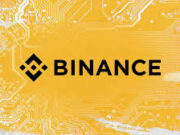In a groundbreaking move that bridges the worlds of cryptocurrency and professional sports, Tether Holdings SA, the issuer of the world’s largest stablecoin USDT, has emerged as the second-largest shareholder in Juventus Football Club, one of Italy’s most iconic and storied teams. By April 2025, Tether had amassed a 10.5% stake in the Serie A giant, valued at approximately €128 million ($149 million), marking a historic moment as the first time a major European football club has welcomed a crypto company as a top shareholder. This bold investment not only underscores Tether’s aggressive diversification strategy but also signals the growing influence of digital assets in traditional industries like sports. Let’s dive into the details of this landmark deal and explore its implications for Juventus, Tether, and the broader intersection of football and blockchain technology.
The Rise of Tether’s Stake in Juventus
Tether’s journey with Juventus began in February 2025, when the El Salvador-based company, through its investment arm Tether Investments S.A. de C.V., acquired a minority stake of 8.2%, equating to roughly 5% of the club’s voting rights. By April, Tether had increased its holdings to 10.5%, securing 6.18% of voting rights and overtaking investment management firm Lindsell Train (8.7%) to become the second-largest shareholder behind Exor NV, the Agnelli family’s investment vehicle, which retains a commanding 65.4% majority. This rapid escalation in ownership reflects Tether’s confidence in Juventus’ long-term potential, both on and off the pitch.
The announcement of Tether’s increased stake sent ripples through the market, with Juventus’ shares rising over 2.7% to €3.2 ($3.65) on April 24, 2025, and the club’s crypto fan token, JUV, surging more than 10% to a two-month high of $1.08. This financial boost comes at a critical time for Juventus, which has faced challenges in recent years, including a fourth-place finish in Serie A and a drop to 16th in Deloitte’s Football Money League with annual revenue of €356 million, its lowest ranking in history.
Tether’s Vision: More Than Just a Financial Play
Tether’s CEO, Paolo Ardoino, has been vocal about the strategic intent behind this investment, emphasizing that it’s not merely a financial maneuver but a long-term commitment to innovation and collaboration. “We believe Juventus is uniquely positioned to lead both on the field and in embracing technology that can elevate fan engagement, digital experiences, and financial resilience,” Ardoino stated. Tether aims to integrate blockchain technology into Juventus’ operations, potentially revolutionizing areas like ticketing, merchandise, fan engagement, and even player transfers through secure, transparent digital systems.
Tether’s broader portfolio diversification supports this vision. Beyond Juventus, the company has invested in agriculture, artificial intelligence, and digital media, including a 30% stake in Italian media company Be Water and a $775 million investment in social media platform Rumble Inc. These moves demonstrate Tether’s ambition to leverage its $7 billion in excess capital—fueled by profits from U.S. Treasury bill holdings—to become a major player across multiple sectors. For Juventus, Tether’s expertise in digital assets and its global reach could unlock new revenue streams and enhance off-field operations, aligning with the club’s efforts to recover financially and competitively.
Challenges and Tensions: Tether’s Push for Influence
Despite the optimism surrounding Tether’s investment, the relationship with Juventus’ management has not been without friction. In April 2025, Juventus launched a capital raise expected to generate between €15 million and €110 million, but Tether was notably excluded from participating, despite its expressed willingness to inject further funds. Ardoino publicly voiced his disappointment on social media, highlighting a lack of formal explanation from the club’s board and sparking speculation about underlying disagreements. Some analysts suggest that Exor and Juventus’ leadership may be wary of ceding too much influence to a relatively new player like Tether, founded in 2014, compared to the Agnelli family’s nearly century-long control of the club.
Tether has also pushed for a seat on Juventus’ board, with advisor Juan Sartori rumored as a potential candidate, signaling the company’s desire for greater governance involvement. However, weak communication has stalled progress, and Ardoino has indicated that Tether remains open to dialogue only if Juventus engages meaningfully. This activist stance is unusual for a minority shareholder in European football, where traditional ownership models often limit external influence, and it raises questions about how Tether’s ambitions will align with Juventus’ established power structure.
The Bigger Picture: Crypto Meets Football
Tether’s investment in Juventus is a landmark moment for the convergence of cryptocurrency and sports. As blockchain technology gains mainstream traction, its applications in football are becoming increasingly apparent. From fan tokens that offer voting rights on club decisions to NFT-based collectibles and decentralized payment systems, crypto companies are redefining how clubs interact with their supporters and manage finances. Juventus, with its global fanbase and storied legacy, is an ideal platform for Tether to showcase the potential of these innovations, potentially setting a new standard for the industry.
However, challenges remain. Tether’s stablecoin, USDT, has faced regulatory hurdles, including its removal from major exchanges in the EU due to non-compliance with the Markets in Crypto Assets (MiCA) law. Some critics question whether Tether’s high-profile investments, like Juventus, are partly an attempt to bolster its legitimacy in traditional markets. Regardless, the company’s financial clout—reporting a $13.7 billion profit in 2024 and a USDT circulating supply exceeding $156 billion—makes it a formidable partner for Juventus, provided both sides can navigate their governance differences.
What’s Next for Juventus and Tether?
As Juventus looks to rebound from recent on-field struggles and financial setbacks, Tether’s investment could provide a much-needed boost. The club’s appointment of Damien Gomolli as General Manager to lead commercial efforts suggests a focus on revitalizing its brand and revenue streams, areas where Tether’s technological expertise could prove invaluable. Meanwhile, Tether’s growing stake and activist approach signal its intent to play a pivotal role in shaping Juventus’ future, potentially paving the way for other crypto firms to enter the sports arena.
For fans, the implications are exciting yet uncertain. Will Tether’s involvement lead to innovative fan experiences, such as blockchain-based ticketing or exclusive digital collectibles? Or will governance tensions distract from Juventus’ core mission of competing at the highest level? Only time will tell, but one thing is clear: Tether’s 10.7% stake in Juventus marks a bold new chapter in the evolution of football, where tradition meets the cutting edge of technology.
Conclusion
Tether’s rise to become Juventus’ second-largest shareholder with a 10.5% stake is more than a financial transaction—it’s a statement of intent from a crypto giant looking to reshape one of football’s most prestigious clubs. As Tether pushes for greater influence and Juventus navigates its financial recovery, their partnership could redefine how sports clubs leverage digital assets to engage fans and drive growth. While challenges remain, this historic deal highlights the transformative potential of blockchain in football, setting the stage for an exciting future. Stay tuned as this story unfolds, blending the passion of the beautiful game with the innovation of the crypto world.




























Think this could bring crypto-powered fan tokens or NFT ticketing to the club
Juventus’ $230M loss last year makes Tether’s investment a bold bet
Will their $149M stake help stabilize the club, or is it just a crypto PR stunt
is Exor’s keeping them at arm’s length to avoid crypto drama
Good thing they didn’t buy Manchester United